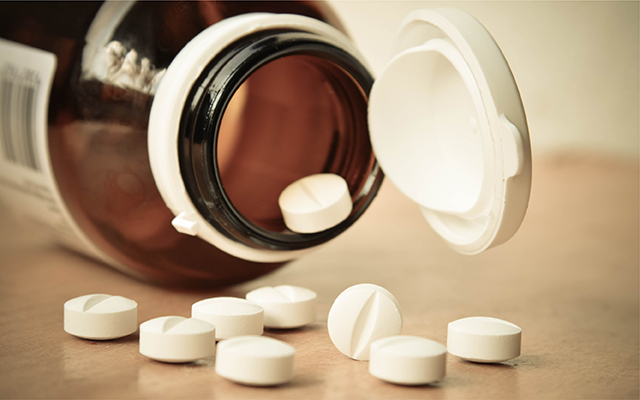As a child in the 1950s, I was never particularly conscious of the pharmaceutical influence on our hardscrabble suburban household. It was a thinly veiled secret that Dad took some pills; he had ulcers, as I recall, and later suffered from a malfunctioning heart. I was anemic and for some years gulped daily spoonfuls of syrupy liquids delivering vitamin C and iron, but Mom called it “California orange juice,” which seemed to render it less than medicinal. Other than that, the only consistent occupant of our medicine cabinet was a bottle of aspirin.
It’s where you turned for relief from assorted aches and pains, I learned as a youngster. It wasn’t until much later that I heard that a daily dose might even prevent heart attacks and strokes. And for reasons that have nothing to do with the thoughtful discernment of benefits and liabilities, that knowledge was never sufficient to get me to pop an aspirin every day.
Ignorance, as they say, is bliss.
Last week, the New England Journal of Medicine published the results of a major clinical trial suggesting that a daily aspirin habit did not prolong “healthy, independent living” among healthy older adults. In fact, those taking aspirin were slightly morelikely to expire than those who took a placebo during the study’s nearly five-year follow-up period. If there was any consolation to earlier researchers, it wasn’t heart attacks or strokes that felled most of those geezers — it was cancer.
But even that fact sent some tremors through the medical community. “The increase in cancer deaths in study participants in the aspirin group was surprising, given prior studies suggesting aspirin use improved cancer outcomes,” Leslie Ford, MD, assistant director for clinical research at the National Cancer Institute’s Division of Cancer Prevention, said in a statement. “Analysis of all the cancer-related data from the trial is underway and until we have additional data, these findings should be interpreted with caution.”
The results may only apply to ordinarily healthy adults, age 70 and older with no history of heart disease, stroke, dementia, or physical disabilities, but lead study author John McNeil, MD, of Melbourne, Australia’s, Monash University, was shaken by the findings — “the ugly facts which slay a beautiful theory,” he told the New York Times. “If you don’t need it,” he said of the daily aspirin dose, “don’t start it.”
Still, McNeil encouraged anyone who has been popping those pills to ward off cardiac arrest and stroke to talk to their doctors before halting their habit. The same goes for any geezer who, like me, has blissfully ignored the pro-aspirin gospel, said Evan Hadley, MD, of the National Institute on Aging. “For healthy older people, there’s still a good reason to talk to their doctors about what these findings mean for the individual,” he told the Times. “This is the average for a large group. A doctor can help sort out how it applies individually.”
I’m all about greeting these sorts of revelations with a healthy dose of skepticism, but I can only imagine the conversation that would ensue if I actually brought this to the attention of my beleaguered physician:
“Doc, I heard that taking a daily dose of aspirin may not help prevent a heart attack or stroke in otherwise healthy folks my age. In fact, it may lead to cancer.”
“Do you take a daily dose of aspirin now?”
“No.”
“Well, your blood pressure is off the charts, so you should probably consider it. You’re not as healthy as you think.”
“It’s only off the charts when I’m sitting in your office, Doc, and I think I’m relatively healthy.”
“Have you had a colonoscopy since I saw you last?”
“No.”
“Prostate test?”
“No.”
“So, you may not be as healthy as you think. I’m going to write you a prescription for some statins.”
“I won’t fill it, but thanks anyway. At least I can pick up some aspirin at the pharmacy. I think I feel a headache coming on.”




This Post Has 0 Comments